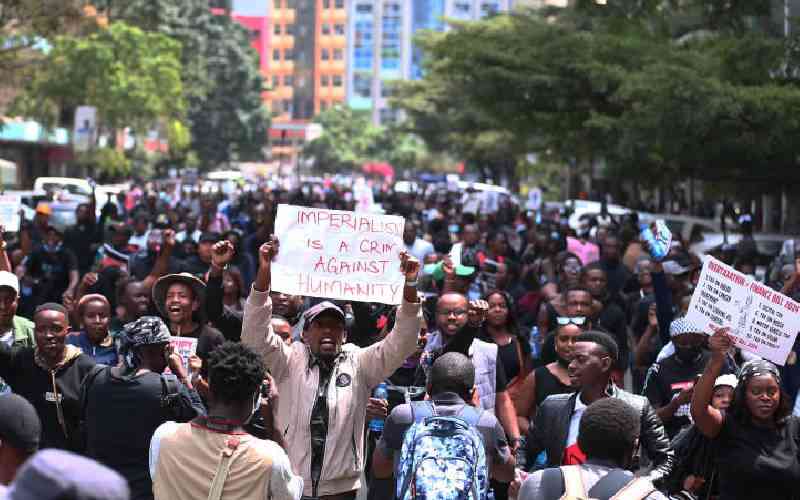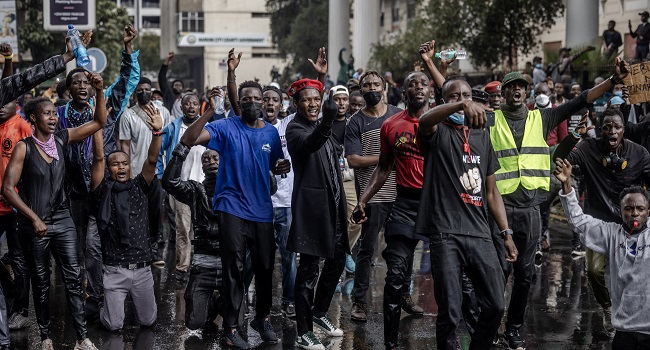- Kenyan police have banned all demonstrations in central Nairobi, citing public safety concerns after recent protests turned deadly
- President William Ruto’s attempts to quell the unrest, including scrapping tax hikes and dismissing his cabinet, have not stopped the rallies, with many still calling for his resignation
- Rights groups accuse the police of using excessive force, as the protests have left 50 people dead and over 400 injured since mid-June
Kenyan police announced late Wednesday that no demonstrations would be allowed in central Nairobi, following a series of deadly anti-government protests that have rocked the nation.

The recent protests were sparked by now-abandoned tax hikes and have led to violent clashes, resulting in scores of deaths, according to a state-funded rights group.
In a bid to address the unrest, President William Ruto has scrapped the proposed finance bill containing the tax increases, dismissed his cabinet, and promised government cuts.
However, protests have continued across the country, with many calling for the president’s resignation.
Acting National Police Chief Douglas Kanja stated, “No demonstrations will be permitted in the Nairobi Central Business District and its surroundings until further notice to ensure public safety.”
The decision was taken after officials received “credible intelligence that organized criminal groups are planning to take advantage of the ongoing protests,” leading to increased violence and disorder.
The Nairobi CBD has been the epicenter of many previous marches, and ahead of the ban, posters circulated online calling for protesters to gather in Uhuru Park before marching on State House on Thursday.
Must Read:
1: Instagram Socialite Hires Nail Technician She Met During Protests: ‘He Approached Me’
2: Journalist Wanjeri Kariuki Shot in Thigh While Covering Nakuru Protests
The police statement highlighted that “criminals have continued to infiltrate the protesting groups,” resulting in destructive conduct.
Prominent demonstrator Hanifa Edan previously posted that the movement had been infiltrated by “goons,” reflecting concerns shared by many protesters.
The ban follows smaller protests earlier in the week, which saw a heavy police presence and tear gas used against demonstrators.
Since the protests began on June 18, 50 people have died and 413 have been injured, according to the Kenya National Commission on Human Rights.
Rights groups have accused police of using disproportionate force against the protesters, further escalating tensions in the country.

